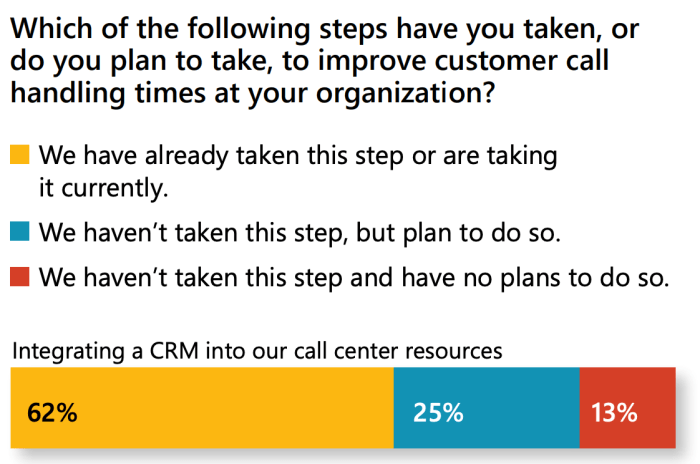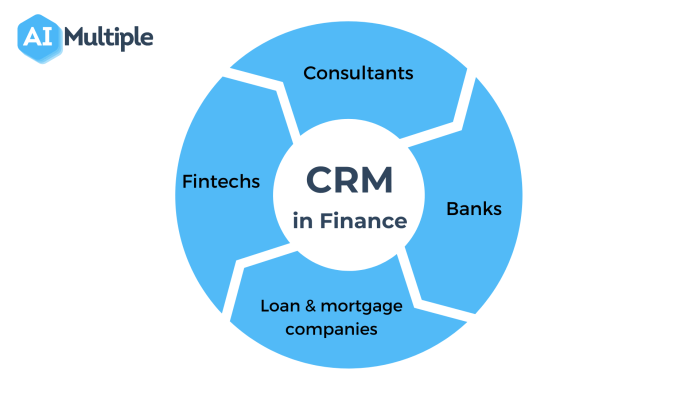Crm software for financial services industry – The financial services industry operates on trust, relationships, and personalized service. In today’s competitive landscape, managing client interactions effectively is paramount. Customer Relationship Management (CRM) software has emerged as a crucial tool, enabling financial institutions of all sizes to streamline operations, enhance client experiences, and ultimately, drive revenue growth. This comprehensive guide delves into the specifics of CRM software tailored for the unique needs of the financial services sector.
Understanding the Unique Needs of Financial Services
Financial services present specific challenges that general-purpose CRM systems often fail to address. These include stringent regulatory compliance, the need for robust security measures to protect sensitive client data (PII, financial details, etc.), and the importance of maintaining accurate and auditable records. A financial CRM must go beyond basic contact management; it needs to facilitate complex processes such as:
- Wealth Management: Tracking investments, portfolios, and financial goals.
- Investment Banking: Managing deal flow, client relationships, and communication throughout the investment process.
- Insurance: Streamlining policy management, claims processing, and client communication.
- Lending: Managing loan applications, approvals, and ongoing client servicing.
- Compliance and Risk Management: Ensuring adherence to regulations and minimizing risk.
Key Features of a Financial Services CRM
A robust CRM for financial services should incorporate several essential features:
1. Secure Data Storage and Access Control
Protecting sensitive client data is paramount. The CRM must adhere to industry regulations like GDPR, CCPA, and others, offering robust encryption, access controls, and audit trails. Features like multi-factor authentication (MFA) and role-based access control (RBAC) are crucial.
2. Comprehensive Client Profiling and Segmentation
Understanding client needs and preferences is key. The CRM should allow for detailed client profiling, capturing financial information, investment goals, risk tolerance, and other relevant data. This enables effective segmentation for targeted marketing and personalized service.
3. Workflow Automation and Process Optimization
Automating repetitive tasks such as lead nurturing, appointment scheduling, and report generation frees up valuable time for advisors to focus on client relationships. Workflow automation streamlines operations and improves efficiency.
4. Integrated Communication Tools
Seamless communication is vital. The CRM should integrate with email, phone, and messaging platforms, providing a unified view of all client interactions. This ensures consistent communication and enhances client experience.
5. Reporting and Analytics

Source: aimultiple.com
Data-driven decision-making is essential. The CRM should provide comprehensive reporting and analytics capabilities, offering insights into client behavior, sales performance, and other key metrics. This allows for strategic planning and improved business outcomes. Dashboards providing real-time performance indicators are beneficial.
6. Regulatory Compliance Features
The CRM must comply with relevant regulations, including those related to data privacy, security, and reporting. This may involve features like audit trails, data retention policies, and integration with compliance systems.
7. Integration with Other Systems
Seamless integration with other systems used by the financial institution, such as accounting software, portfolio management systems, and loan origination systems, is critical for a holistic view of client data and operations. API integrations are key.

Source: lio.io
Choosing the Right CRM for Your Financial Institution
Selecting the right CRM requires careful consideration of several factors:
- Size and scale of your institution: A small firm might need a simpler, more affordable solution than a large multinational bank.
- Specific needs of your business: Consider the specific features and functionalities required to support your core business processes.
- Budgetary constraints: CRM solutions vary significantly in price, ranging from cloud-based subscription models to on-premise deployments.
- Integration capabilities: Ensure the CRM integrates seamlessly with your existing systems.
- Scalability and future growth: Choose a CRM that can scale to accommodate your future growth and evolving needs.
- Vendor reputation and support: Select a reputable vendor with a proven track record and excellent customer support.
Examples of CRM Software for Financial Services
Several leading CRM vendors offer solutions tailored for the financial services industry. These include (but are not limited to): Salesforce Financial Services Cloud, Microsoft Dynamics 365 for Finance, and several niche players specializing in specific areas like wealth management or insurance.
Frequently Asked Questions (FAQ): Crm Software For Financial Services Industry
- Q: What is the cost of a financial services CRM? A: The cost varies significantly depending on the vendor, features, and deployment model. Cloud-based solutions typically offer subscription-based pricing, while on-premise solutions involve higher upfront costs.
- Q: How long does it take to implement a financial services CRM? A: Implementation time depends on the complexity of the solution and the size of the institution. It can range from a few weeks to several months.
- Q: What are the benefits of using a CRM in financial services? A: Benefits include improved client relationships, enhanced operational efficiency, increased revenue, better compliance, and reduced risk.
- Q: Is cloud-based CRM secure for financial data? A: Reputable cloud-based CRM providers offer robust security features, including encryption, access controls, and compliance certifications, making them suitable for handling sensitive financial data. However, due diligence is crucial in selecting a provider.
- Q: Can a CRM help with regulatory compliance? A: Yes, many financial CRMs offer features specifically designed to assist with regulatory compliance, such as audit trails, data retention policies, and reporting capabilities.
Conclusion
CRM software is no longer a luxury but a necessity for financial institutions seeking to thrive in today’s competitive environment. By carefully selecting and implementing a solution that addresses their unique needs, financial services firms can enhance client relationships, streamline operations, and achieve sustainable growth. The key lies in choosing a system that prioritizes security, compliance, and seamless integration with existing systems.
Investing in the right CRM is an investment in the future of your business.
References
Call to Action: Ready to transform your financial services business with a powerful CRM? Contact us today for a free consultation!
Detailed FAQs
What are the key features of a good CRM for financial services?
Key features include robust security, compliance capabilities, client segmentation tools, comprehensive reporting, integration with existing financial systems, and personalized communication options.
How much does CRM software for financial services cost?

Source: aimultiple.com
Pricing varies greatly depending on the vendor, features included, and the number of users. Expect a range from affordable cloud-based solutions to enterprise-level systems with significant upfront investment.
What are the common challenges in implementing CRM in financial services?
Common challenges include data migration, system integration with legacy systems, user adoption, and ensuring compliance with regulations like GDPR and CCPA.
How can I choose the right CRM for my financial institution?
Consider your specific needs, budget, the size of your organization, and the level of technical expertise available. Request demos from different vendors and compare features, pricing, and customer support.
